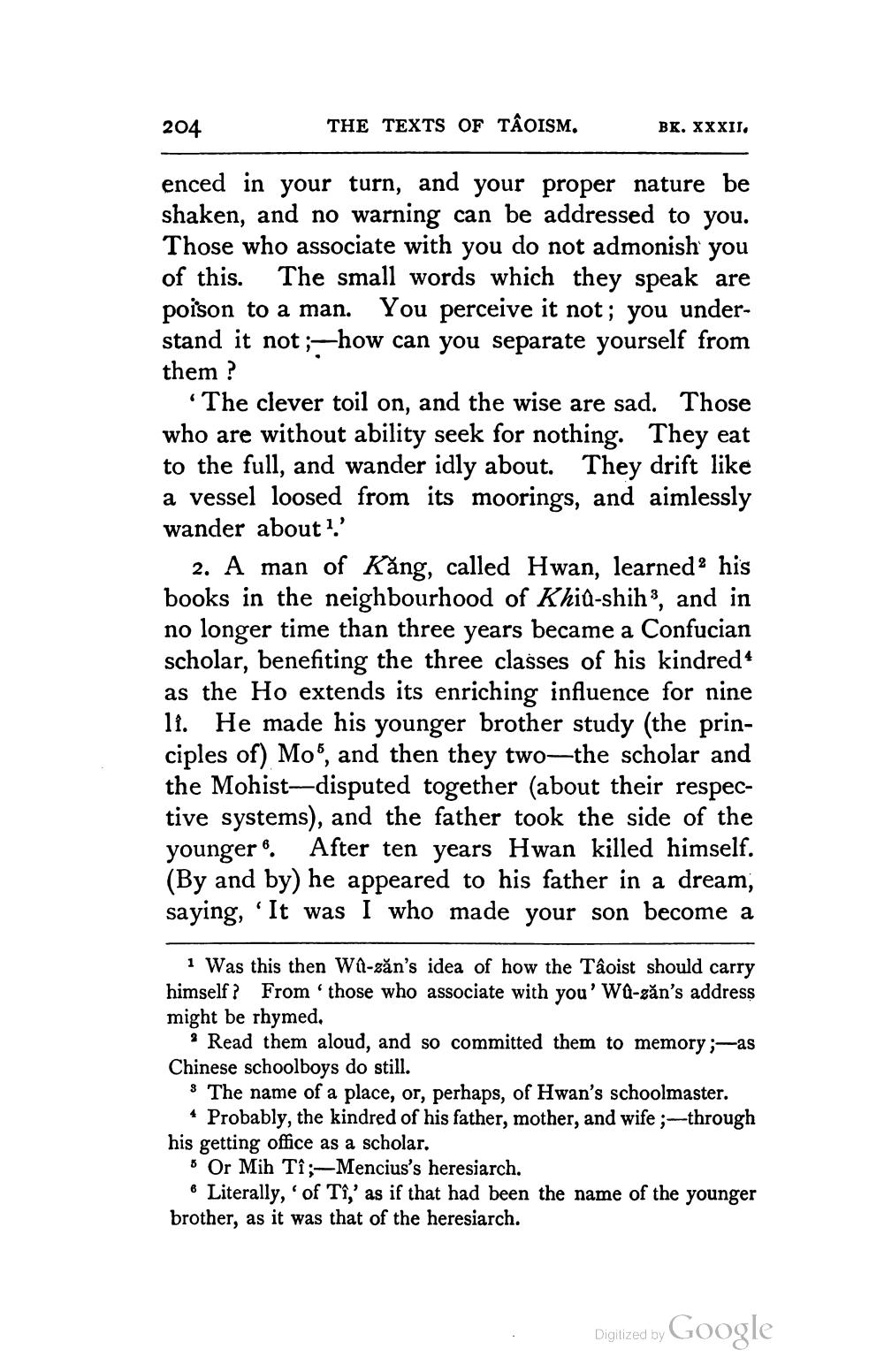________________
THE TEXTS OF TAOISM.
204
enced in your turn, and your proper nature be shaken, and no warning can be addressed to you. Those who associate with you do not admonish you of this. The small words which they speak are poison to a man. You perceive it not; you understand it not; how can you separate yourself from them?
BK. XXXII.
'The clever toil on, and the wise are sad. Those who are without ability seek for nothing. They eat to the full, and wander idly about. They drift like a vessel loosed from its moorings, and aimlessly wander about '.'
2. A man of Kăng, called Hwan, learned his books in the neighbourhood of Khiû-shih3, and in no longer time than three years became a Confucian scholar, benefiting the three classes of his kindred1 as the Ho extends its enriching influence for nine 11. He made his younger brother study (the principles of) Mo, and then they two-the scholar and the Mohist-disputed together (about their respective systems), and the father took the side of the younger ". After ten years Hwan killed himself. (By and by) he appeared to his father in a dream, saying, 'It was I who made your son become a
1 Was this then Wût-zăn's idea of how the Tâoist should carry himself? From those who associate with you' Wû-zăn's address might be rhymed.
Read them aloud, and so committed them to memory;-as Chinese schoolboys do still.
8 The name of a place, or, perhaps, of Hwan's schoolmaster. * Probably, the kindred of his father, mother, and wife ;-through his getting office as a scholar.
Or Mih Tî;-Mencius's heresiarch.
Literally, of Tî,' as if that had been the name of the younger brother, as it was that of the heresiarch.
Digitized by Google




